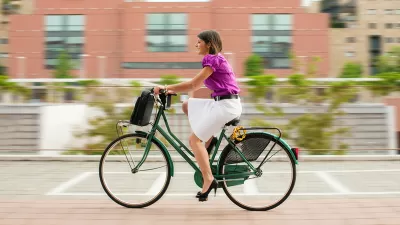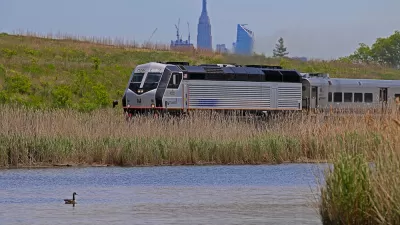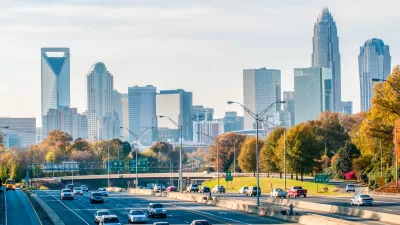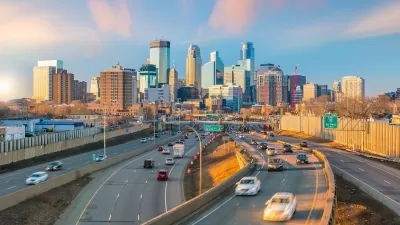The conventional planning wisdom seems to be that long drives are less beneficial to well-being than a short walk. But what about other commuting options?

Last week, I saw something on Twitter I had already seen several times: a link to studies suggesting that people are happier when they can walk to work than when they spend a long time driving to work. This claim strikes me as only slightly less obvious than the claim that water is wet. But at the same time, it raises more questions than it answers. For example:
*Is commuting-related unhappiness limited to driving, or is the long-distance commuter equally dissatisfied whether she bikes, drives, takes a bus, or takes a train? Or to put it another way, does the sheer length of commuting reduce well-being, or is mode choice also an important factor? For example, if a commuter's choice is between a 20 minute drive and a 40 minute subway ride, which is more demoralizing? One British study suggests drivers are as happy or happier than transit users when commuting time is equal; another study disagrees.
*The "short walk/long drive" dichotomy presupposes that work is in a downtown or other walkable neighborhood, while the long drive is from the outer edges of suburbia. But most Americans (including me) work in suburbs. If a commuter's job is in a suburban office park, is he happier living close to the office park, or should he prefer a long ride from a more walkable neighborhood?
*Given that, other things being equal, a short walk is better than a long drive, how should a commuter weigh that factor against other factors? For example, the rent for my current apartment in Manhattan is comparable to the rent for a two-bedroom apartment in Queens, or a three-bedroom house in Suffolk County. As a single person, the extra space is useless to me. But if I had a spouse and a child or two, would the benefits of the extra space outweigh whatever unhappiness I suffered from my commute?
I don't know the answers to any of these questions; I only claim that further research is worthwhile.

Alabama: Trump Terminates Settlements for Black Communities Harmed By Raw Sewage
Trump deemed the landmark civil rights agreement “illegal DEI and environmental justice policy.”

Study: Maui’s Plan to Convert Vacation Rentals to Long-Term Housing Could Cause Nearly $1 Billion Economic Loss
The plan would reduce visitor accommodation by 25% resulting in 1,900 jobs lost.

Planetizen Federal Action Tracker
A weekly monitor of how Trump’s orders and actions are impacting planners and planning in America.

Wind Energy on the Rise Despite Federal Policy Reversal
The Trump administration is revoking federal support for renewable energy, but demand for new projects continues unabated.

Passengers Flock to Caltrain After Electrification
The new electric trains are running faster and more reliably, leading to strong ridership growth on the Bay Area rail system.

Texas Churches Rally Behind ‘Yes in God’s Back Yard’ Legislation
Religious leaders want the state to reduce zoning regulations to streamline leasing church-owned land to housing developers.
Urban Design for Planners 1: Software Tools
This six-course series explores essential urban design concepts using open source software and equips planners with the tools they need to participate fully in the urban design process.
Planning for Universal Design
Learn the tools for implementing Universal Design in planning regulations.
Caltrans
Smith Gee Studio
Institute for Housing and Urban Development Studies (IHS)
City of Grandview
Harvard GSD Executive Education
Toledo-Lucas County Plan Commissions
Salt Lake City
NYU Wagner Graduate School of Public Service






























